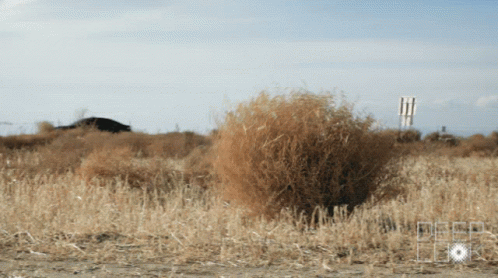so a common claim I see made is that arch is up to date than Debian but harder to maintain and easier to break. Is there a good sort of middle ground distro between the reliability of Debian and the up-to-date packages of arch?
fedora is a good middle ground
OpenSUSE tumbleweed is a good compromise IMO. it is also a rolling release distro with built in snapshotting. So if anything does go wrong it takes ~5 mins to roll back to the last good snapshot. You can set the same thing up on arch but it isn’t ootb and YAST is a great management tool as well.
I would say Tumblewees is better than traditional Fedora.
But the lack of desktops, variants, adoption, as well as the lack of being able to reset a system, makes it less stable than Fedora Atomic Desktops.
Resetting is huge. You can revert to a bit-by-bit copy of the current upstream.
It is not complete at all, but already works as a daily driver. uBlue deals with almost all the edges that are left.
Tbh my main gripe with Tumbleweed is the package manager as someone who likes to use the CLI, the weird naming convention, renames, etc are annoying. Also found some minor annoyances that all put together made me choose Fedora over Tumbleweed. I can see why some people would like it tho.
You can use dnf on OpenSuse, and it actually uses the correct
/etc/dnf.repos.d!zyppers UI is horrible, no idea at what internet speed those animations make sense, not on an even 2,4GHz wifi.
I used QGis as a Fedora Distrobox didnt install the language package, because it installs only the one from the OS. on Tumbleweed all languages were always installed, but it had some issue where no plugins worked or something.
Same with RStudio, which works creat with iucar/cran COPR and the R-CoprManager app that makes it use dnf underneath.
Rstudio should absolutely install them as libs though, into /var/lib. Then the Flatpak could be made working too I guess.
I found zypper package speed for download seems to vary a lot, sometimes superfast and other times it drips in like old dialup. Maybe server load or what default server it hits is too many hops away or something. It also does delta downloads, which makes sense if your data is capped, but takes a lot longer to negotiate the lookup for update, compare versions, and pull delta only.
Good thing about zypper and SUSE setup is you can use the various patch, patches, list patches commands to see what is unneeded, recommended or critical, CVE, and if has already been applied to your system or not. Great tool for sysadmin
Yes I would love to have mail notifications etc for security updates.
Currently setting up a server, CentOS installer didnt boot so my lazy ass just rebased to securecore (Fedora IoT -> uBlue uCore -> secureblue) which is very nice but rolling.
With LUKS encryption, which I want and need, this is problematic, as I need to manually type the password afaik. TPM unlock didnt work even though I have a Nitrokey with a TPM integrated afaik.
I am not 100% sure, but I had something similar with passworded drive. There was a way to edit crypt tab stuff so that when system looks for pwd input on boot it went to the hashed file to get password. I forget the steps I did, but online there is a walk through and it was not too difficult to configure…just a few manual file edits
but then why use OpenSUSE instead of just Fedora?
Because they have Slowroll and working, automatic BTRFS snapshots.
I have no idea what dnf Fedora is doing, using BTRFS but no snapshots.
I think fedora does have some automatic snapshots, just not as much as OpenSUSE. Still tho, why not setup better snapshots on Fedora rather than switch package manager and repos altogether on openSUSE?
No they dont. Just the basic kernel backups, which is pretty little
It’s not even a compromise really, it’s very up to date and very stable.
Is there a good sort of middle ground distro between the reliability of Debian and the up-to-date packages of arch?
This guy:

(OpenSUSE Tumbleweed).
Or maybe Slowroll.Absolutely. Here’s three options
Fedora updates every, or around every, 3 months. This is very stable but very up to date.Most professional devs particularly ones working in Linux projects use it fornit’s relative stability while having modern packages.
There’s also PopOS! which is a rolling release, updating daily, but much more delayed than arch thus being much more usable.
Now for my favourite, OpenSuse Tumbleweed. Same style as PopOs but with a KDE, or gnome spin or of the box. A bit more sleek too. It also has YAST which is the best GUI based managment system on Linux.
I use arch (btw) but have a second duel booted tumbleweed install for work related stuff in order tonensure stability
Wait, Pop_OS switched to rolling release?
From their website:
"Update on Your Terms
Pop!_OS provides the latest features and security patches through rolling updates and periodic OS version upgrades, to be performed at your discretion. And if you want a clean slate, the Refresh Install feature resets your OS while preserving the files in your Home folder. "
That’s not what a rolling release is…
I didn’t say it was. I posted the quote from the website to clarify.
Pop OS is very much not a rolling release
It also has YAST which is the best GUI based managment system on Linux
Semi-offtopic. Suse was my first distro 20 years ago and in those few months I had such a nightmarish experience with dependency hell in YAST and Yum, and such a contrastingly good experience with APT after I finally moved to Debian, that I have only ever used Debian and Ubuntu since then and I am still traumatized by the mere sight of the name YAST.
Silly but alas true! Of course I didn’t understand anything back then and I’m sure YAST is much better these days.
Fedora is a good middle ground, it’s what Asahi Linux uses as its official distro
Another upvote for Fedora. I tried SO many flavors over the years and every single one of them, while cool and neat up front eventually developed “something” that was too problematic.
So I asked for a recommendation with a very specific set of things that I needed from a distribution. Everybody told me to just stop messing around with different flavors and just go with plain old vanilla Fedora.
It has been rock solid and perfect in every way, and I no longer have that need to distrohop because I’m missing something.
+1 for Fedora. It is exactly what OP is asking for.
OpenSUSE Tumbleweed.
I’ve found openSUSE tumbleweed to be the perfect mix between stable and constant updates. By default uses brtfs so if you break something the fix is a simple as rolling back to the snapshot that was automatically made right before the update
To be honest PopOS is great. Frequent updates, good (subjective) design and ui choices, just works. If it fits your vibe I would say it is a good balance!
It also has the benefit of being able to apply the vast majority of Ubuntu tutorials, etc. since it’s based on it. Plus it doesn’t force you to use snaps for everything.
I’m running PopOS on a computer for wathing media at home. I’m not too impressed. I read a bunch of comment threads recommening it so I treid it out. They seem a bit unstable – that at least falls in OP middle ground. I made an update and dpms management was just different, like the screen is no longer turning itself off. I’ve had some thing like this happen on it. It’s not breakage, it’s a bit annoying. “Just works”? Eh, sure, kinda’.
Sorry to hear that, milage varies depending on hardware, I suppose. I have had it running on a Lenovo laptop for over a year without issues. Hope you find good distro fitting your needs and hardware specs out of the box!
Fedora is generally pretty good
Debian Stable isn’t the only way to run Debian though people often act like it. That said, if you want the stability of Debian Stable then run it with the nix package manager (nix-bin).
Or with Flatpak!
What’s wrong with Ubuntu/Mint/PopOS/Fedora or any of the distros usually recommended? They’re easier to maintain and more up to date than Debian
I wouldn’t call them up to date but they are a little newer than Debian with the exception of Pop OS.
wouldn’t call them up to date
they are a little newer
Huh
What is confusing? It is newer than Debian but still fairly out of date compared to Fedora or the latest Ubuntu release
deleted by creator
OpenSUSE Tumbleweed. Rolling release, but has QA on the weekly builds. It fits between Debian and Arch for sure.
You could… of course also try to use Debian Testing (which is more stable than Debian Unstable), but also more up to date than just Debian Stable.
https://wiki.debian.org/DebianTesting And see also: https://www.debian.org/releases/testing/ (currently “trixie” is the testing release).
EDIT: I mention this, because nobody mentioned it yet.
Yes somebody did mention Debian Sid, which is Debian unstable. Which is maybe even more up to date (I still don’t consider it rolling release, because there will be a package freeze, if not multiple).
Sid is very much living on the edge. I wouldn’t advise using it. (Although I don’t advise Arch either)
please do not use debian testing. it is not fit for production use and will give you headaches, especially when a new release starts approaching
Tumbleweed
This may be an unpopular opinion, but NixOS. It has package up-to-dateness comparable to (and sometimes better than) Arch, but between being declarative (and reproducible) and allowing rollbacks, it’s much harder to break. The cost is, of course, having to learn how to use NixOS, as it’s a fair bit different to using a “normal” Linux distro.
Double this, nix has entirely changed my perspective on what I should expect from software and my operating system. It’s so rock solid and roll backs are easy. Reproduction with all the customization you could ever want with incredible transparency.
While I never saw the benefit (it is to complex) I do think it isn’t a bad choice
to be honest it’s actually not that hard depending on what you do with your PC. If you want something you can set up once and forget about NixOS is perfect, put auto-updates and the stable channel and you will be able to forget about it for months, only having to occasionally edit your config file to switch to a new release. In fact I’d argue that if they manage to get a GUI package manager, and auto-update + auto-clean setup on installation, they’d probably be one of the best noob-friendly distros out there even.
The issue is that they sometimes tend to do big changes to how things are handled, documentation is sorely lacking and if you’re a tinkerer (especially if you like ricing) you may have a harder time than regular distros. That said the convenience of having a list of all the programs you use in a single file is amazing and I hope every package manager adopts a similar declarative way of installing software.
I find it much easier to just use something more “normal”
fair enough it’s one of the reasons I switched out of NixOS but it’s not too much harder if your usecase doesn’t involve programs not in the repo or building from source tbf













